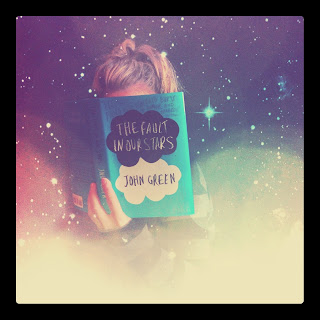Life has been... well... life. Which has kept me from writing. Which in turn has kept me from posting because, hey, what could I say? "Oh, hey guys! Still not writing. Too busy trying to round up the marbles of my life which I've dropped all over the hardwood floor. Sorry I'm not inspiring! See y'all later!" Not really gonna cut it.
But just because I haven't written lately doesn't mean I haven't been creative. So I guess that's a stupid excuse. In fact, I've amped up my creativity quite a lot, especially in the last few months.
 |
| Tucker being ridiculously adorable. |
But you may not know that I've also started an Etsy store with my latest endeavor: hand-lettered typography. Most days, I spend my lunch hours sketching, and my evenings inking the sketches onto nice paper. [BELOW]
 |
| *FOR MORE INFO SEE BOTTOM OF POST |
 |
| The "cleanest" part of my office. |
In my office alone, none of the art is hung. [RIGHT] Boxes flood the floor {because I have no storage}, all my art supplies and gadgets and computer and monitor are littering other parts of my house where I can use them since my office is pretty much just a storage shed/library. My books are only so organized on my shelves because they are sharing space with random objects and picture frames that have nowhere else to sit. It's driving me insane.
 So, right now, my priorities have shifted to finishing the desk, getting it out of the garage -- where my husband can then move all his shit that clutters the house {it's a vicious cycle}-- and the house can maybe not be such a source of clutter in my mind.
So, right now, my priorities have shifted to finishing the desk, getting it out of the garage -- where my husband can then move all his shit that clutters the house {it's a vicious cycle}-- and the house can maybe not be such a source of clutter in my mind. 
Which is an exciting prospect. Because when my surroundings are in chaos, my mind is, too. {Spent an entire Sat. sanding all of this, btw}.
Needless to say, with all that going on, I haven't really been focused on the writing aspect of my life. I haven't forgotten or abandoned it... just... haven't focused my energies there. I think it was much needed. In truth, things had been a little depressing for me in the fall/winter. I stopped sending out queries/synopses/etc in August, but got a continuous trickle of rejections through about November.
To be fair, there were many positive rejections. {One in particular, which came out of the blue a couple months after I'd stopped expecting to get any more responses, actually ended up meaning a lot to me because I was having a really rough week when I got it. And even though it was a rejection, it made me feel a little better}. [RIGHT]
But when something you truly believe in continues to give you almost nothing of real encouragement/positivity in return for years of devotion and effort, no matter how hard you try to change things, the veil of hope begins to wear thin. Especially when so many agents found it promising but, ultimately, not fresh enough. I'm convinced that this is the worst possible feedback you can get on a manuscript. How? How do you fix that? Srsly. It's very disheartening.
You've got a bunch of bananas. They're ripe and bright and yellow and delightful. They are the best things you've ever tasted. But by the end of the week they aren't quite as bright. A little brown is creeping in. They're the same bananas you wanted on Monday, but by Friday, you've gotten used to the taste. You know these will be just as good, but it's not like you haven't had several like it before. Like, all week. You can actually taste them by memory without opening one up, and you decide to pass. You want a fresher one. So, at this point. my manuscript is sortof, to agents, like the bananas on Friday. Is it just the newest freshest plot ever? No. Is it still satisfying? I'd like to think so. But here's where my stubborn determination to not give up kicks in:
 |
| Not my photo. Totally grabbed this off the internet. |
Wait another week and those bananas have finally reached the perfect ripeness for just the most fantastic banana bread ever. Yes, the bananas are mushy. No, they don't seem like something you wanna snatch off the shelf and devour. But add a few ingredients and give it some time... and you've got something devourable after all.
So I guess what I'm saying is: to me, my manuscript isn't bananas on Friday. My manuscript is banana bread. I just have to find the right ingredients and then give it some time. It will be fresh when the time is right. Maybe not in the same way as a ripe banana, but still devourable... still leaving you wanting more.
Anyway, that's the short version of where I've been and what I've been up to. I hope, if nothing else, you were entertained, and that maybe your life will seem easier and calmer in comparison to mine ;)
*Profits from ATYPeICAL are used to pay for the desk, art supplies, writing supplies, and books. Basically, if you buy my stuff, you're helping to sustain my creativity... and my sanity. So... please decorate your home and keep me sane!




.JPG)













.JPG)
.JPG)




.JPG)
.JPG)
.JPG)
.JPG)
.JPG)





